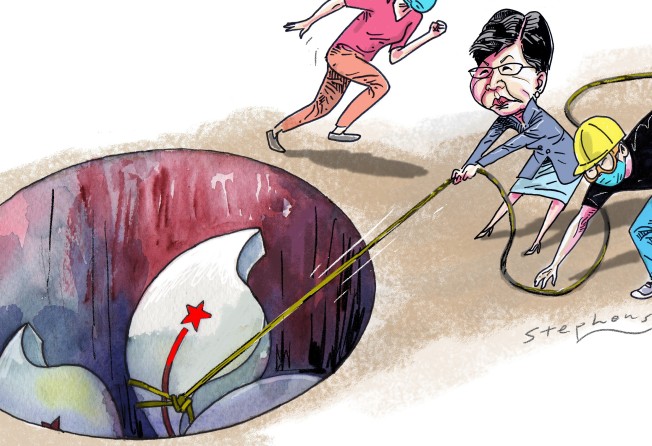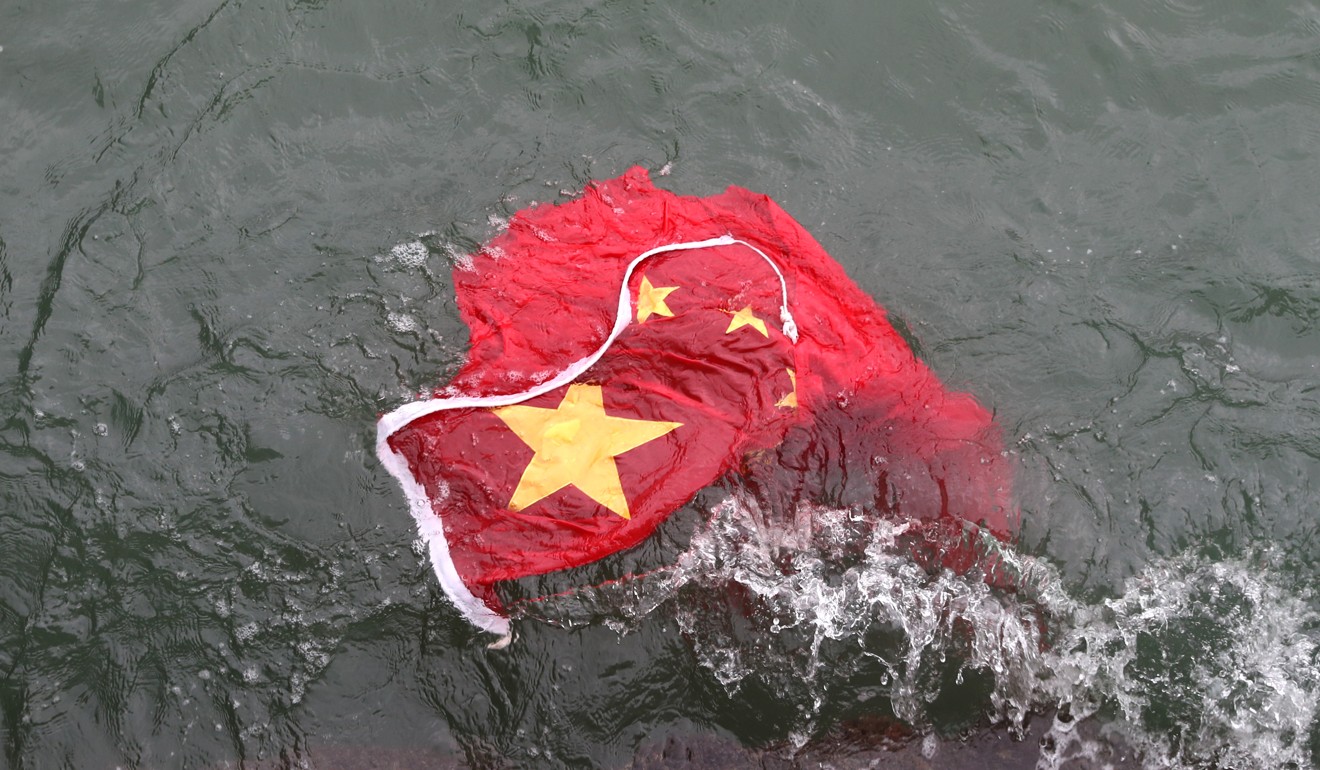At long last, Carrie Lam has heeded one call from Hong Kong protesters: it’s not much, but it’s a start
- After three months of sometimes violent protests, the government has relented by withdrawing the extradition bill, but more must be done
- End the silence on alleged police abuses, put universal suffrage back on the agenda, and examine why so many young people are directing their anger at Beijing

The calls for Hong Kong’s extradition bill to be withdrawn have finally been answered, after three months of protests, strikes and violent clashes which have seen the city plunged into chaos. To say that the chief executive’s belated and somewhat begrudging concession is too little, too late is an understatement.
It is not surprising that Carrie Lam Cheng Yuet Ngor’s decision to meet the first of the protesters’ demands – withdrawal of the bill – has been greeted with scepticism. It was swiftly dismissed by protesters and democrat lawmakers. Even some in the pro-establishment camp said it is not sufficient.
The protests will continue. An airport demonstration is planned for tomorrow and the Civil Human Rights Front intends to hold another mass procession. Some of the protesters said Lam’s concession shows the combination of large-scale peaceful protests and extreme action by a minority is working. Clearly there is more work to be done.
But Lam’s decision to withdraw the bill could mark a turning point. It is the first time she has granted any of the protesters’ five demands. Even last week, as the troubles escalated, Lam was refusing to give in.
There was much speculation that Lam had been forbidden by Beijing to withdraw the bill. Bernard Chan, a key adviser to Lam, wrote in this newspaper on August 16 that neither the Hong Kong nor national government would back down. He said: “The central government has made it clear as a matter of principle that no administration can make concessions in the face of violent street demonstrations. This is a matter of constitutional order, and there cannot be any flexibility on this.”
The problem the government faces, however, is that the violence by a relatively small number of protesters is backed, or at least tolerated, by hundreds of thousands of peaceful protesters from across Hong Kong society. Both governments have been seeking to divide the two groups. The concession, no doubt, is intended to appeal to the moderate majority.
Clearly, the bill should have been withdrawn three months ago. Hong Kong might then have been spared the troubles which followed. Lam’s decision to back down now follows advice given to her from many quarters, including in her recent meetings with community leaders and a group of millennials.
It will not be enough. But it is a start. Finally, the government has given something to the protesters in a bid to show good faith and start a dialogue.
The protesters’ other four demands have not been met. Their call for a commission of inquiry into police conduct has been rejected. Lam is sticking to her position that the Independent Police Complaints Council (IPCC) should handle such matters.
There is scepticism about both the independence and effectiveness of the existing police complaints mechanism. There have been widespread calls for a judicial inquiry, including from former chief justice Andrew Li Kwok-nang.
Whatever form the inquiry into police conduct takes, what matters is that it produces credible results. The police have been thrust by the government into the front line of the conflict. With no political solution offered, officers have faced the challenging task of maintaining law and order while not inflaming protesters. They have been subjected to violence, including the throwing of petrol bombs.
But there is no doubt that some officers have overstepped the mark. Videos circulating online and eyewitness accounts suggest that disproportionate and, at times, indiscriminate force has been used. Officers responsible for this must be held to account, and prosecuted if need be.
More than 1,000 protesters have been arrested. Some are already before the courts. They, too, must bear responsibility for their actions. It is difficult to see how their demand for an amnesty could work. But while the government has repeatedly condemned violence by protesters, it has been silent on the question of police abuses. A public call for the police to respond to the protests proportionately and within the law would be helpful.
Many questions arise about police strategy during the protests. It remains to be seen whether the IPCC report will adequately tackle these issues and ensure lessons are learned. The chairman, Anthony Neoh, has said that a commission of inquiry may be required at a later stage. The government should make it clear this option remains open.
Lam has pledged that she and her officials will go out into the community to better understand the issues underlying the protests. This is welcome. The government has appeared hopelessly out of touch and completely misjudged public reaction to the bill. It needs to hear opposing views, not just those of its own supporters. They should meet young people at the heart of the protests.
The chief executive also promised to invite community leaders, academics and professionals to review the deep-seated problems in society. It is not clear how this initiative will work. If it is to succeed, those involved must be truly independent and drawn from all sectors of society. Its findings must be transparent and brutally frank. There can be no tiptoeing around sensitive issues.
[Lam] made no mention in her address of concerns among many Hong Kong people that the city’s core values and way of life … are being eroded
Lam mentioned problems such as housing, land supply, income distribution, social justice and mobility. These are, of course, important. But the political issues must not be overlooked. She made no mention in her address of concerns among many Hong Kong people that the city’s core values and way of life, distinct from those on the mainland, are being eroded.
Any investigation must look at the so-called mainlandisation of Hong Kong and why so many young people direct their anger at the central government. The process will fail if these sensitive issues are glossed over.

Universal suffrage must be put back on the agenda. It cannot be separated from the social and economic issues cited by Lam. There is a need for an open discussion on both the election of the chief executive and the Legislative Council. Progress will be difficult if the debate is restricted to the limited framework laid down by Beijing in 2014.
Hong Kong, it is said, is on the verge of plunging into an abyss. But if both sides can grasp it, there is an opportunity for the city to emerge from this crisis and to make fundamental changes which lead it to a brighter future.
Cliff Buddle is the Post’s editor of special projects